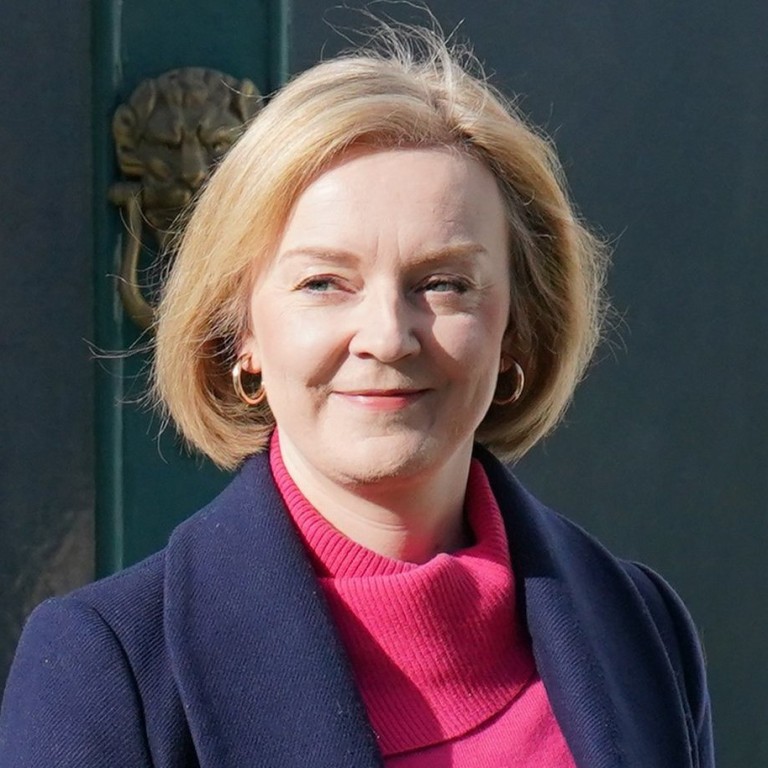
Liz Truss, UK prime minister for 49 days, refuses to rule out fresh leadership bid
- Liz Truss, the shortest-serving prime minister in Britain’s history, says she has ‘unfinished business’
- Truss was ousted in 2022 and replaced by Rishi Sunak after losing the support of the Conservative Party
Liz Truss, prime minister for just 49 days before being ousted over her disastrous tax-cutting mini-budget, refused to rule out putting herself forward again to lead Britain’s Conservative Party.
Truss’ economic agenda spooked the markets and took the UK to the brink of financial meltdown, losing her the support of her own party in October 2022.
Ahead of the publication of her book, Ten Years to Save The West, she said she believed a return to frontline politics could still be a possibility.
“I definitely have unfinished business. Definitely. And I think the Conservative Party has unfinished business,” she told LBC Radio on Monday.
“I think, if we’re honest with ourselves, we haven’t done enough to reverse the Blair legacy,” she added, referring to ex-prime minister Tony Blair who came to power in 1997 in a landslide victory for the main opposition Labour Party.
Pressed on whether she would rule out standing again in future to lead the Conservative Party, the 48-year-old said: “Well, it’s never wise to rule anything out in politics, is it?”
Truss - a self-described free-market liberal who promised “growth, growth, growth” before she took office - has remained as an MP since stepping down.
She has repeatedly urged the government to slash taxes, abandon some net-zero commitments and increase the retirement age.
In a speech in September 2023, she blamed “25 years of economic consensus” and complacency for causing stagnation, due to an “anti-growth coalition” of the “political and economic establishment”.
“I believe it is vital that we understand that and shatter that economic consensus if we are to avoid worse problems in the future,” she told the Institute for Government political think-tank.
Her latest comments come as the British economy continues to feel the after-effects of her chaotic, short-lived tenure, heaping political pressure on her successor Rishi Sunak with a general election expected later this year.

.png?itok=arIb17P0)